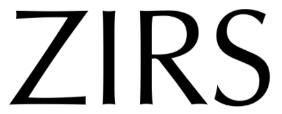Jamie Cross [The University of Edinburgh]
Gisa Weszkalnys [London School of Economics]
An awareness of climate change and its disastrous effects is by now widespread in media, as well as in academic and political debates. It prompts the question of how we are to achieve a sustainable future. How can today’s societies be reshaped in regard to energy consumption and resource extraction? How may new natural resouces and ways of energy supply be discovered? What political decisions and technological innovations are required? And what social and environmental consequences will such transformations have in various parts of the world?
Given the fact that western “carbon democracies” (Timothy Mitchell) are not only based on, but also shaped by fossile energy and natural resource extractivism, such futures seem to be difficult if not impossible to think of. At the same time, it is obvious that extractivim is not inherently coupled with democratic societies; rather, it flexibly integrates with different political systems to form multiple and changing configurations of capitalism in various places and over changing periods of time. Furthermore, extractivism not only shapes landscapes and lifestyles in capitalist economies, but also lifeworlds and environments which appear – at least at first sight – not as part of capitalist economic zones, as for instance off the grid communities or non-industrial places which still might experience effects of extractivism.
Within anthropology, different schools and methodological approaches including political economy, political ecology, marxist or STS inspired anthropology have dealt with resources in different ways. These lines of thought often existed parallel to each other. Our workshop aims to think through these different perspectives in relational ways. Following Richardson and Weszkalnys (2014), we aim to think beyond a “methodological modernism” which studies natural resources exclusively as isolated entities and commodities within the frame of capitalist economies. In line with Jamie Cross (Cross 2014; Cross and Murray 2018) we want to avoid limiting us to binaries such as commodity/waste, modernization/decline, scarcity/abundance by considering a range of possible conditions and creative activities which fill the space between these assumed extremes, such as modes of care, reuse, and repair. We thus understand natural resources as formed through a relational performance of productive generative powers (including the powers of capitalism and inequality) that exceed formal economic models (Cross, Muray 2018). The workshop focusses on, but is not limited to, the following thematical issues:
1. Resource Materialities: The Becoming of Resource Environments
2. (Re-)configurations of Extractivism and their Temporalities
3. Relational Geographies of Extractivism and Resourcing
4. Politics if Resourcing: Values and Valuations
We cordially invite scholars working on or interested in the above-mentioned questions to join the workshop. This workshop is based on various discussion formats, joint readings and keynotes. Accordingly, workshop participants are not expected to prepare an individual presentation. Interested participants are, however, invited to propose a 5-7 Minutes problem-oriented input based on their own research which may serve as a starting point for joint discussions of the methodological and other questions raised. There is no participation fee to be paid. Travel and accomodation costs cannot be covered by the organizers.
